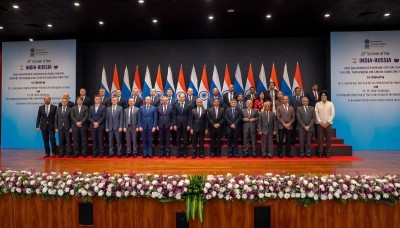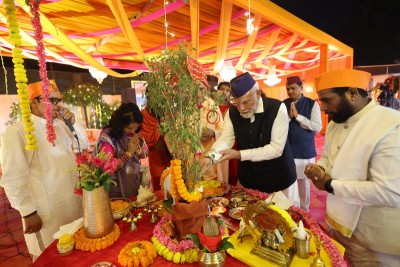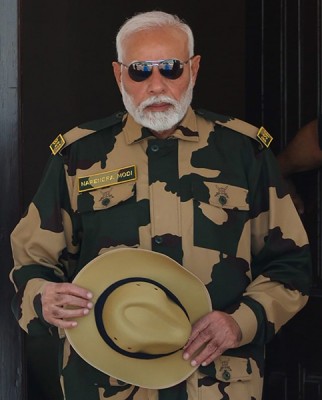
How far is India from UN Security Council?
After a long drawn deliberation, the facilitator of the inter-governmental negotiations (IGN), Courtenay Rattray, shared a framework document in the General Assembly, which is supposed to culminate into a negotiating text---the basis for negotiations to reform the Security Council in order to embrace more countries as permanent members and make its working more inclusive and transparent. UN reform efforts are facing severe headwinds. China's ambassador, Liu Jieyi, is at the forefront strongly opposing the text.
China is leading a full-fledged diplomatic campaign against text-based negotiations across various capitals, of the World. The Chinese foreign ministry has resorted to demarches and employed their diplomatic instruments abroad to abort the process of text-based negotiation. Behind the scene, the red dragon is employing their commercial clout in Africa to build a position of resistance against the text-based negotiation. Similar efforts are being reported from Pacific islands too; where the Chinese are wooing their allies to strike resonance around its stand. The recent arrest of former president of the UN General Assembly, John Ashe, on charges of bribery by the Chinese has proven beyond doubt the presence of a China lobby in the UN system to delay or scupper the Security Council reform process, among other things.
But China’s is further not alone in mobilizing anti UN Security Council extension voices. The 25 members Uniting for Consensus (UFC) group comprising of countries like Pakistan, Italy, Mexico, Egypt, South Korea, etc is another serious obstacle. The UFC believes that the document is biased and could not be the axis for a negotiated resolution. US and Russia too have expressed reservation on the process of text-based negotiation, making the ongoing process a mere academic exercise. Albeit, US has been very vocal about India’s inclusion in the Security Council, but their opposition to the text based negotiation has jolted India. With three giants—China, US and Russia against the text-based negotiation, the ongoing process won’t reach any conclusive end either. It would eventually collapse amid steadfast resistance from all fronts.
This opens the gate for UN to call for voting among its member countries. Indian diplomats believe text-based negotiations are its best prospect to enter into the UNSC. However India has to prepare for a life after a failed text based negotiation. It has to raise the game and prepare for an UN voting in future. PM Narendra Modi has recently authored a long letter for all 193-member countries of the UN advocating India's case in the UNSC.
In advent of UN voting, India is upbeat about canvassing support from 80 out of 193 countries, for its Security Council candidature. The proximity with US will bring in additional votes, as was evident during India’s endorsement by the powerful nuclear supplier group, under the ambit of Indo-US civilian nuclear deal. However it is still far short of the magic numbers. India’s clubbing with the G-4 (India, Germany, Brazil and Japan) was timely and stands politically pragmatic. The G-4 nations are trying to hard push the text-based negotiation, in its bid to raise the clamor for their inclusion in the global high table. Their recent huddling on the sideline of the UN General Assembly was a part of their strategy to step up the momentum. However the G4 contenders themselves are in a dissimilar position today. Germany being the third country from Europe aspiring for the UNSC, its chances stand bleak. Brazil has its own economic woes to tackle, which leaves Japan and India fighting the reform battle in unison.
The G4 played the smart act of supporting representation from Africa in the UNSC. This would raise their chances of canvassing votes from large number of African nations, should it goes down to the ballot. However the African Union has its own share of problem. AU failed to build a consensus on any specific candidature from Africa. Nevertheless, the African votes would count should the UN zeroes on voting.
The Africa Summit provided a decent platform for India to strike resonance with its African counter part for UNSC reform. India has used the congregation of 54 African states to build a case for its entry into the UN elite club. With China’s economic hold over Africa on the wane, India should ride the opportunity in Africa to aggressively expand its commercial and diplomatic footprint. A significant chunk of votes would flow from Latin America. But India has to cling on Brazil to set the tone and momentum, in its favor. India could have played a better game in Latin America, but it doesn't have the influence and deep pockets like China. India is also hoping that its growing economic stature and appeal, translates into votes in Latin Africa and elsewhere. The Indian think tank in south block must be working overtime to put a strategy in place, should India’s bid for a permanent seat in the powerful Security Council boils down to ballot.
Either text based negotiation or voting, it is imperative to have the ratification from the five permanent members of the Security Council. China sees no reason to support India’s entry into the UNSC. UK, France and the US are in favor of India’s inclusion in Security Council and have reaffirmed their commitment, on several occasions. Russia, India's oldest supporter for the UNSC seat, of late is more reticent about its stand. As India has gravitated more towards the US, Russia has moved closer to China, in its attempt to balance power in the largely changing geo-political situation across the globe. The ties between China and Russia are warming up for quite some time. It would be premature to predict, if the China card weighs heavy on Russia’s historic stand on India’s inclusion. As of now Russia is adopting the strategy of “Go Slow” in line with many other countries. Russia would keep its cards close to chest and play as per the unfolding situation.
To arrive at a consensus text would be an extremely difficult task and so would be getting an overwhelming majority votes in the favor of India. Hence, to imagine that India is closer to permanent membership in the immediate future would be politically naïve. Even in the medium term, the prospect isn’t looking bright. But India’s has to continue its effort and use it growing economic clout to leverage the momentum for a permanent seat in the UN Security Council. Prime Minister Narendra Modi should continue to raise the issue of UNSC expansion as well as drum support for India's candidature with his international counterpart during his foreign sorties and not let the momentum slip away.
Sujeet Sarkar is an author and works as an international advisor on governance. He writes columns on international affairs for several reputed publications
Support Our Journalism
We cannot do without you.. your contribution supports unbiased journalism
IBNS is not driven by any ism- not wokeism, not racism, not skewed secularism, not hyper right-wing or left liberal ideals, nor by any hardline religious beliefs or hyper nationalism. We want to serve you good old objective news, as they are. We do not judge or preach. We let people decide for themselves. We only try to present factual and well-sourced news.







